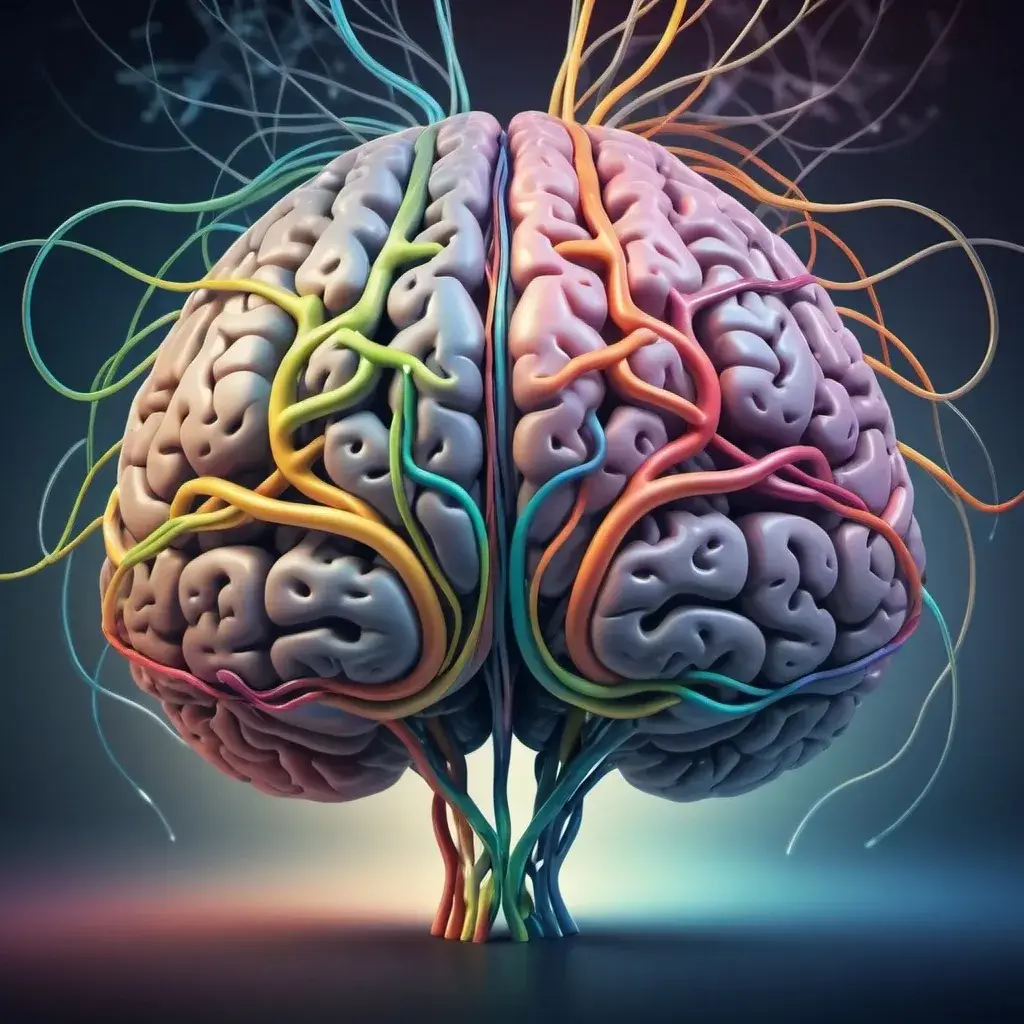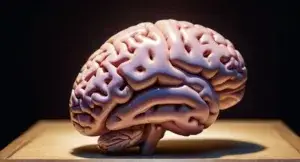Table of Contents
Our brains naturally change as we age, affecting our cognitive abilities, memory, and overall health. While some decline in brain health is unavoidable, research has identified a number of key factors to improve brain health and cognitive function. In this piece, we’ll look at the major elements influencing our ability to improve brain health and cognitive function, as well as practical tips for remaining sharp.
The 10 Factors to Improve Brain Health and Cognitive Function
1. Genetics and Family History
Genetics have a crucial role in brain health, with research suggesting that inherited characteristics may increase the risk of age-related cognitive decline. Individuals who have a parent or sibling with Alzheimer’s disease or another type of dementia are more likely to develop it themselves.
Takeaway: While you cannot change your genetic makeup, understanding your family history may help you make better lifestyle choices to lower your risk of cognitive decline.
2. Exercise and physical activity.
Research has shown that regular exercise improves cognitive performance, increases blood flow to the brain, and even encourages the production of new brain cells. Research has linked physical activity to a lower risk of age-related cognitive decline and dementia.
Takeaway: Strive for 30 minutes of moderate-intensity exercise five days a week, such as brisk walking, cycling, or swimming.
3. Diet and Nutrition
A well-balanced diet high in fruits, vegetables, whole grains, and lean proteins promotes overall brain function. Omega-3 fatty acids, antioxidants, and other nutrients found in foods like green leafy vegetables, berries, and almonds can help prevent inflammation and oxidative stress, both of which can damage brain cells.
Takeaway: Focus on whole, unprocessed foods, and consider taking brain-boosting supplements such as omega-3 fatty acids and turmeric.
4. Sleep.
Sleep is critical for brain health, and research has found that sleep deprivation can impair cognitive ability, memory, and mood. Aim for 7-9 hours of sleep per night to help your brain function properly.
Takeaway: Maintain a consistent sleep regimen, limit stimulating activities before bedtime, and create a relaxing sleep environment.
5. Stress Management.
Chronic stress can lead to cognitive decline, anxiety, and depression. Effective stress management techniques, such as meditation, yoga, or deep breathing exercises, can help lessen the negative effects of stress on brain health.
Takeaway: If you’re feeling stressed or anxious, practice stress-reduction techniques, emphasize self-care, and seek professional help.
6. Social Engagement.
Research has linked social engagement to a reduced incidence of cognitive decline and dementia. Engage in mentally stimulating activities such as puzzles, games, and volunteer work, and prioritize social connections with friends and family.
Takeaway: Join a club or group that shares your interests, go to social functions, and try to stay in touch with family and friends.
7. Mental Stimulation and Challenge
Participate in mentally stimulating activities such as learning a new skill, reading, or playing a musical instrument to boost cognitive reserve and lower the risk of cognitive decline.
Takeaway: Set aside time each week to engage in mentally difficult activities and encourage yourself to try new things.
8. Age-appropriate cognitive training
Cognitive training programs designed for older adults can help them improve their memory, attention, and processing speed. You can access these programs either online or through community groups.
Takeaway: Joining a cognitive training program or using internet tools can help you keep your mind sharp.
9. Brain Health Supplements.
Studies have shown that certain supplements, such as omega-3 fatty acids, vitamin D, and turmeric, can improve brain function. However, always consult with a healthcare professional before incorporating supplements into your routine.
Takeaway: Before incorporating brain health supplements into your routine, talk with a healthcare professional. Prioritize a balanced diet and a healthy lifestyle.
10. Health Conditions and Medications
Diabetes, hypertension, and depression are all medical conditions that can impact your mental health. Medications like benzodiazepines and sedatives have the potential to impair cognitive ability.
Takeaway: Manage underlying health conditions, and consult with your doctor if you have any concerns or questions about medicines and their effects on brain health.
To recap, sustaining a healthy brain and cognitive performance demands a comprehensive approach that includes lifestyle changes, nutritional eating, and a commitment to general health. Understanding the fundamental variables that govern brain health enables people to take proactive steps to maintain brain function and reduce the risk of cognitive decline.
Top Takeaways to Improve Brain Health and Cognitive Function
- While you cannot change your genetic makeup, understanding your family history may help you make better lifestyle choices to improve your brain health and cognitive function.
- Strive for 30 minutes of moderate-intensity exercise five days a week, such as brisk walking, cycling, or swimming.
- Focus on whole, unprocessed foods, and consider taking brain-boosting supplements such as omega-3 fatty acids and turmeric.
- Maintain a consistent sleep regimen, limit stimulating activities before bedtime, and create a relaxing sleep environment. Sleep is an important factor to improve brain health and cognitive function.
- If you’re feeling stressed or anxious, practice stress-reduction techniques, emphasize self-care, and seek professional help.
- Join a club or group that shares your interests, go to social functions, and try to stay in touch with family and friends.
- Set aside time each week to engage in mentally difficult activities and encourage yourself to try new things.
- Joining a cognitive training program or using internet tools can help you keep your mind sharp. Apps, games and puzzles are a great way to improve brain health and cognitive function.
- Before incorporating brain health supplements into your routine, talk with a healthcare professional. Prioritize a balanced diet and a healthy lifestyle.
- Manage underlying health conditions, and consult with your doctor if you have any concerns or questions about medicines and their effects on brain health. Any underlying health conditions could have a negative impact on your attempts to improve brain health and cognitive function.
Resources to Improve Brain Health and Cognitive Function
1. Mayo Clinic – Managing Chronic Conditions
- Managing Chronic Conditions
- Overview of how to manage chronic health conditions and their impact on overall well-being, including mental health.
2. National Institute on Aging – Medicines and Brain Health
- Medicines and Your Brain
- An informative guide on how different medications can affect brain health, especially in older adults.
3. WebMD – Medications and Memory
- Drugs That May Cause Memory Loss
- A slideshow detailing various medications that can impact memory and cognitive function.
4. Harvard Health Publishing – Prescription Drugs and Brain Health
- Medications that May Affect Memory
- A deep dive into how certain prescription drugs can affect brain function and memory.
5. Alzheimer’s Association – Medication Safety
- Medication Safety for Cognitive Health
- Tips and advice on medication safety, especially concerning cognitive health and preventing memory loss.
6. American Heart Association – Hypertension and Brain Health
- How High Blood Pressure Affects Your Brain
- Information on the impact of hypertension on brain health and why managing blood pressure is crucial for cognitive function.
7. Centres for Disease Control and Prevention (CDC) – Chronic Disease Management
- Managing Chronic Diseases
- Resources and strategies for managing chronic diseases that can impact brain health.
8. National Institutes of Health (NIH) – Cognitive Health and Aging
- Cognitive Health and Aging
- Information on the intersection of aging, brain health, and chronic conditions.
9. Cleveland Clinic – Drug Side Effects on the Brain
- Medications That Can Affect the Brain
- An article discussing which medications might have cognitive side effects.
10. Mental Health Foundation – Physical Health and Mental Wellbeing
- How Physical Health Impacts Mental Health
- Discusses the relationship between physical and mental health, emphasizing the importance of managing physical conditions.









The article does an excellent job of covering the multifaceted nature of brain health and cognitive function. It presents a balanced view, offering actionable advice backed by scientific evidence. This makes it a valuable resource for anyone looking to maintain or improve their cognitive health through a holistic lifestyle approach.
your article provides a comprehensive overview of the essential elements that contribute to maintaining and improving cognitive health. The discussion is well-rounded, covering key areas like physical activity, nutrition, sleep, mental engagement, and stress management. This holistic approach is critical because brain health is influenced by a combination of lifestyle factors, rather than any single element.
Overall, maintaining brain health and cognitive function is about adopting a comprehensive lifestyle approach. By integrating physical activity, a brain-healthy diet, adequate sleep, mental stimulation, and stress management into daily routines, individuals can promote better brain health and cognitive longevity.
Hi Aparna thanks for your comments about the article. You are correct that brain health and cognitive function is affected by many different factors. For a lot of people it can be overwhelming to try and focus on changing too many things at once so I usually recommend choosing one area and focusing on it for some time and then once some changes have been made choosing a different area to focus on
Thanks for your interesting and informative article. I firmly believe that if you done use it, you lose it when it comes to our brains and bodies. I believe that our brains start to deteriorate with retirement. We go from using our brains at least 40 hours a week to minimal. That is why it’s important to use our brains once we retire. I agree good omega 3 fats are so important for brain health as opposed to omega 6 fats which cause inflammation. It all comes down to lifestyle.
Lyn
Hi Lyn thanks for stopping by. Use it or lose it is definitely the case. And age is just a number rather than an excuse or a crutch. You are right in that key life events are often triggers for things to happen. One of the other keys that has been identified is social interaction and this can go missing for a lot of people at retirement. Not only do they miss out on the challenge of work, but they also lose the interaction with workmates, customers and suppliers. This is a double whammy for a lot of people. I like to recommend people get involved in local community organisations following retirement as a way to both stay challenged but also to have interaction with others.
Hi. It’s interesting how these factors affect the brain. Just like they would affect the body as well. It’s also interesting how there’s so many different factors. Not just genetics but diet exercise stimulation and so much more. Not to mention abusing addictions it’s really a very precious organ. And everything counts.
Hi Jake Yes everything counts. I think for most of us we could probably identify 1 or 2 areas that would give us the greatest improvement. For a lot of people that could be sleep. For many other people it could be nutrition or exercise. I generally recommend to pick one area and make some changes in that area and then once those changes are part of our daily routine then we could look at additional changes in the same area, or we might look at a different area. Too many changes in too many things at the same time can often lead to a feeling of overwhelm which can mean that nothing changes.
It’s amazing how factors like sleep, diet, and stress play such a big role in our mental sharpness. I’ve definitely noticed that my brain feels sharper when I’m eating well and getting enough rest. The section on mental exercises was particularly interesting—Are there specific types of mental exercises or activities you’d recommend for boosting cognitive function more effectively?
Hi Andy thanks for stopping by. It really depends on what aspect of brain function you are trying to boost as to which activities are best. Are you looking to boost short term memory, long term memory, attention span and focus? If you are just looking for an overall boost in brain function I would suggest mixing up your activities. The apps recommended in the article use a variety of types of activities to do just this.